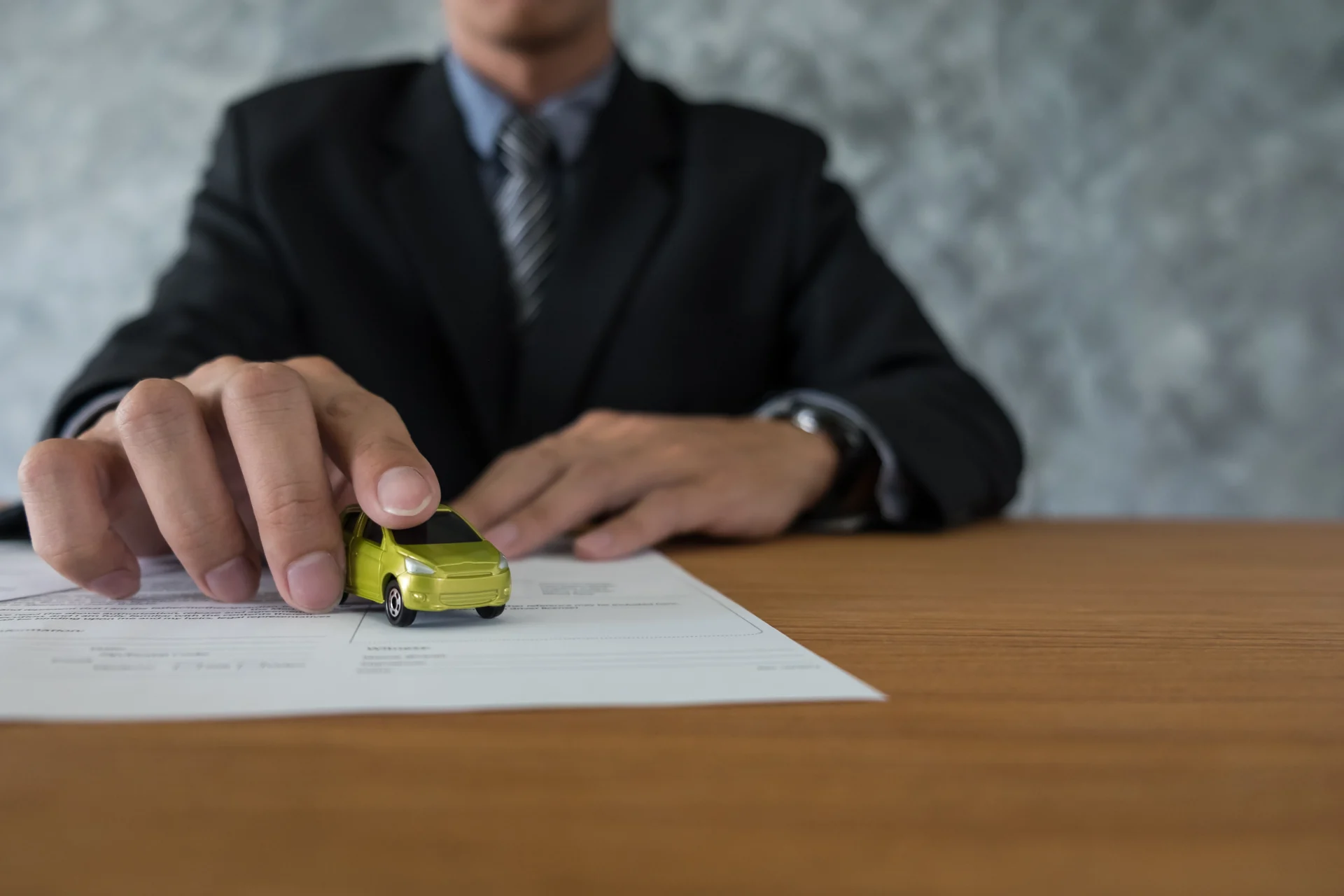What Happens If You Lose a Car Accident Lawsuit?

What happens if you lose a car accident lawsuit? You may owe legal or court fees, but you still have rights. Learn about your next legal steps, including appeals or payment plans.
What Happens If You Lose a Car Accident Lawsuit and What You Can Do Next
When you bring a claim against another driver following a collision, you usually hope for a favorable judgment or a fair settlement. However, it is possible that a court ruling could go against you. In a 2021 survey of legal professionals, experts noted that although around 95% of motor vehicle accident lawsuits settle before trial, there are still cases that end up in court, and some do not succeed. This highlights the real consequences of losing a car accident case and why understanding What Happens If You Lose a Car Accident Lawsuit is so important.
The structure of personal injury lawsuits can be complex, and losing can be stressful. The consequences of losing a car accident case may include financial strain, unpaid medical bills, or responsibility for court costs. Good news though: even if you do not prevail, you still have options to consider, rights to protect, and steps you can take for a better outcome next time.
What happens if you lose a car accident lawsuit?
Losing a car accident claim may require you to cover car accident lawsuit costs, even after working with a car accident lawyer, making financial planning and next steps crucial.
- You receive no compensation for medical bills or vehicle damage since you did not win.
- You might be responsible for some court costs.
- You could face the other party’s attorney fees in certain jurisdictions, though this varies.
- You may have to manage ongoing financial and medical obligations without help from the opposing driver or their insurer.
An unfavorable verdict can feel overwhelming, yet you still have potential paths to explore, including appeals or negotiating a post-trial settlement.
Face your financial responsibilities
Once the court rules against you, car accident lawsuit costs may include your own fees and court expenses, so consult your injury lawyer to understand obligations and potential payment responsibilities.
Attorney fees
When you hired an attorney, you likely agreed to a payment plan or a contingency arrangement (meaning you pay only if you win). If it was a contingency setup, you might owe minimal fees. However, if your contract stipulates certain reimbursements or court costs, you could see an invoice. Consider reviewing car accident lawyer fees to understand various billing methods.
Court costs
These can include administrative fees, transcript charges, and expert witness fees. If you are liable for these expenses, you are expected to pay them promptly, unless you arrange otherwise.
Potential damages or fees for the other side
If you were found partially at fault, the judge might order you to cover certain damages. The rules vary, so confirm with your lawyer whether you need to pay the other side’s attorney fees or any shared legal expenses.
Payment plans
If your financial situation is tight, you may request a payment plan through the court or negotiate directly with the opposing party. Document all arrangements to avoid confusion down the line.
No matter how hefty the bills may seem, facing them head-on can minimize long-term damage to your credit and personal finances. By communicating openly with creditors and the other party’s counsel, you can sometimes reach manageable, incremental solutions.
Consider an appeal or settlement
You may appeal a verdict, but car accident lawyer fees could increase while the higher court reviews mistakes.
- Ground rules for an appeal: Appeals do not automatically retry your entire case. Instead, appellate courts tend to focus on legal or procedural errors. If you think certain testimony was wrongly admitted or a judge misinterpreted a statute, this could form the basis for your appeal.
- Tight deadlines: You often have a limited window (30 days or so) to file an official notice of appeal. Missing this window can end your chance to challenge the verdict. Work closely with your personal injury attorney to stay on track.
- Post-trial settlements: Even after a verdict, both parties can negotiate a settlement to avoid prolonged appeals. This might be appealing to the other side if they want to reduce future attorney fees or the uncertainty of an appellate decision. If you suspect there is room for negotiation, discuss it with your attorney.
- Weigh the costs and benefits: Appeals and additional settlement talks can be expensive and time-consuming. Before moving forward, take a hard look at your finances, the strength of your arguments, and the likelihood of reversing the verdict.
Not every unfavorable verdict should be challenged, but if you see a genuine error or remain convinced the decision was unjust, you can still pursue a better outcome.
Lean on legal rights and resources
Even when the court has denied your claim, it is essential to protect your remaining legal options. You still have certain rights that may help ease the aftermath:
- Right to counsel: You can keep your current attorney or hire a new Kansas City personal injury lawyer for a fresh perspective. Sometimes a second look at the case can uncover missed avenues for relief.
- Insurance involvement: If you are the defendant, your insurer may handle some or all of the financial payout, depending on your coverage limits. Confirm whether your policy offers coverage for judgments or legal fees. If you have questions, review how to file a car accident claim.
- Protection from aggressive collection: Creditors and opposing parties must follow legal procedures to collect a judgment. They cannot simply seize your property without due process. If you receive harassing calls, keep a record and consult your attorney about next steps.
- Possible modifications: In some cases, you can request the court modify certain payment orders if your financial situation severely changes. Judges are not always flexible, but if you present documentation of hardships, it is worth attempting.
Keep in mind that each state imposes specific rules about how judgments are collected and whether wage garnishment may apply. Consider speaking with a Kansas City wrongful death lawyer or premises liability lawyer if your case overlaps with complex injury claims.
What Happens If You Lose a Car Accident Lawsuit in the Long Run?
The long-term effects can vary. Financial obligations may linger, and your insurance rates could change if you were the defendant. The key is not ignoring court judgments or collection efforts. Stay informed and work with your injury law attorney to manage consequences and reduce stress.
Protect Yourself with Empower Injury Law
At Empower Injury Law, we help clients even after a case is lost. If you’re unsure what happens if you lose a car accident lawsuit, we’re here to help you understand your options, appeal the decision if appropriate, or create manageable financial strategies.
Book your free consultation today.
Frequently Asked Questions
1. How Long Does a Car Accident Lawsuit Take?
A car accident lawsuit can take anywhere from a few months to several years, depending on injury severity, fault disputes, insurance issues, and court delays.
2. How to File a Car Accident Lawsuit?
To file a car accident lawsuit, you must submit a complaint in court within the legal time limit set by your state.
3. How Much Is a Car Accident Lawsuit Worth?
The value of a car accident lawsuit depends on factors like medical expenses, lost wages, property damage, and pain and suffering.
4. How Does a Car Accident Lawsuit Work?
A car accident lawsuit works by going through stages such as filing, discovery, negotiation, and possibly a trial to reach a resolution.
5. Could I be sued again for the same accident?
Usually no. Once the court has reached a final decision, that matter is considered resolved under the legal principle of “res judicata,” meaning a case decided cannot be reopened on the same merits by the same parties. Exceptions are rare, so check local rules if you have questions.
6. Is there a time limit for seeking an appeal or settlement?
Yes. Appeals often must be filed within 30 days (or another short timeframe set by your jurisdiction). A post-trial settlement can be discussed at any time, though both sides may feel more urgency soon after the verdict.
7. Should I try mediation after losing?
Mediation is an option if both parties agree to it. While you have already reached a verdict, mediation could help you negotiate parts of the judgment or payment terms, especially if you plan to avoid a long appeal process.
Key takeaway
- If you lose, you may be responsible for your own legal fees, plus possible court costs and the opponent’s fees.
- You have a limited window to appeal, focusing on errors rather than re-trying your entire case.
- Post-trial settlements can still happen, offering a chance to negotiate rather than endure a drawn-out court fight.
- Reach out to your car accident lawyer to review specific financial obligations and potential payment plans.
